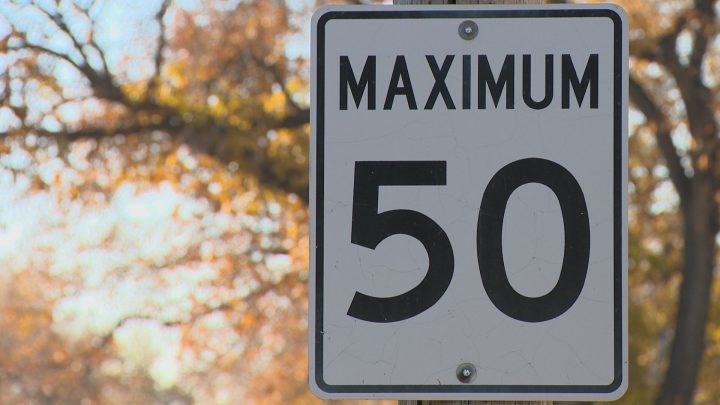
City staff are not recommending a blanket reduction in speed limits on local roads in Orillia.
A draft report that will be presented to council committee in November was shared with Orillia Police Services Board members Tuesday.
It was in response to council’s request in November 2020 that staff look into the feasibility of lowering the speed limit on all local roads to 40 km/h “to enhance pedestrian safety and encourage active transportation.”
A local road is “primarily used to gain access to a property bordering it,” staff explained in the report, noting they are defined in the city's Official Plan as roads that are “designed to accommodate only low volumes of traffic at low speeds and generally only serve local area trips.” There are about 260 of them in Orillia.
Lisa Dobson, transportation technologist with the city, provided reasons for staff’s recommendation to not lower the speed limit.
She cited a 2014 study regarding speed limit reduction from 50 km/h to 40 km/h in urban areas that concluded drivers who reduced their speed to 40 km/h were the ones who had been adhering to the 50 km/h limit.
“The drivers that were speeding in a 50 km/h zone were continuing to speed in a 40 km/h zone,” Dobson said.
Staff also looked at local traffic data. From Jan. 1, 2016, to May 1, 2021, eight collisions were reported in Orillia — an average of 1.6 per year — in which speeding was cited as a driver action.
Impaired driving was a factor in three of those collisions, and all eight crashes were on collector or arterial, not local, roads.
None of the collisions involved a pedestrian and a speeding vehicle.
Data relating to 22 local roads in the city show 85 per cent of drivers travelled at 47.7 km/h, while the average speed was 38.8 km/h.
“While there are some outliers, the data collected by staff shows that, in general, there is not a speeding concern on local roads in the city,” the report stated.
In researching previous studies, staff found “both traditional police enforcement and automated speed control, including the use of mobile cameras, backed up by effective penalties, are needed to complement the speed-management measures such as reducing speed limits, in order to achieve their full effect.
“Therefore, a reduction in actual travel speeds is not a likely outcome with just a reduced posted maximum speed limit.”
Some municipalities have permanent digital signs that display a vehicle’s speed, but that isn’t the case in Orillia, which has one set of signs that are moved to different locations for, typically, seven to 10 days at a time.
“Unfortunately, like a lot of them, people get used to seeing them. They’re great. They’re effective for the first week or two …” Dobson said.
Staff have looked into permanent digital speed display signs, she said, but it’s a question of where they would be installed.
Coun. Rob Kloostra suggested University Avenue near, interestingly, the new Orillia OPP detachment.
He said he is often asked by residents who they should contact if they want speeding enforcement.
Insp. Coyer Yateman, Orillia OPP detachment commander, suggested people report speeding incidents on the OPP website or by calling the OPP non-emergency line at 1-888-310-1122.
He said police conduct focused patrols every month based on data, so the more complaints or reports that are lodged regarding a specific area, the more likely police are to patrol there.
Reduce speed on city streets? Not so fast, warn city staff - OrilliaMatters
Read More
No comments:
Post a Comment